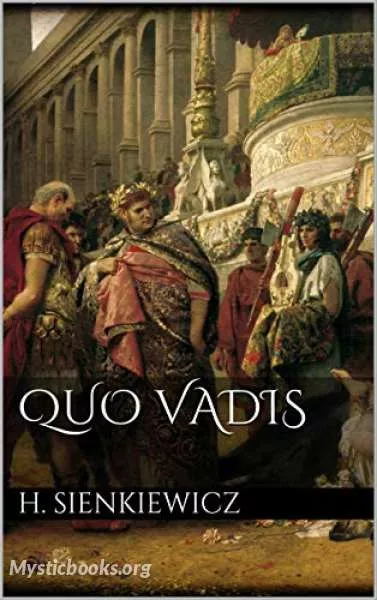
Quo Vadis
'Quo Vadis' Summary
The young Roman patrician Marcus Vinicius falls desperately in love with Lygia, a barbarian hostage being raised in the house of the retired general Aulus Plautius. Vinicius’ courtier uncle Petronius uses his influence with the Emperor Nero to have Lygia handed over to Vinicius. But first, Nero has her appear at a feast on the Palatine Hill. Secretly a Christian after being converted by Plautius' wife Pomponia Graecina, Lygia is appalled by the degenerate Roman court. She is rescued by her fellow Christians while being escorted to Vinicius' house the following day, and disappears.
Petronius takes pity on the desolate Vinicius, and hires the cunning Greek philosopher Chilo Chilonis to help him find Lygia. Chilo soon realizes that Lygia was a Christian, and goes undercover in the Christian community in Rome to find her. When he tells Vinicius that the entire Christian community is going to meet at night outside the city to hear the Apostle Paul, Vinicius insists on attending the meeting himself in hope of seeing Lygia there. At the meeting, a disguised Vinicius is strangely touched by Paul’s words, but forgets everything when he sees Lygia. He traces Lygia to her hiding place in Transtiber Rome, but is stopped and severely wounded by her barbarian bodyguard Ursus when he goes in to kidnap her.
Instead of killing Vinicius, Lygia and her Christian friends take him in and nurse him back to health. At this point Lygia falls in love with him, and confides in the Apostle Paul. He tells her that she cannot marry a non-Christian, so she leaves Vinicius' bedside and disappears a second time.
After returning to health, Vinicius is a changed man. He starts treating his slaves with more kindness, and rejects the advances of the depraved empress Poppaea Sabina. When Chilo brings him information of Lygia’s new hiding place and advises him to surround the house with soldiers, Vinicius has him whipped for his ingratitude (the Christians had spared him after recognizing him as an informer earlier in the book). Chilo swears revenge while Vinicius goes to Lygia's hiding place alone. After promising Lygia's guardians, the apostles Peter and Paul, to convert, he is engaged to Lygia with their blessing .
The emperor Nero and his court, including Vinicius, go to Antium for recreation. Nero is composing a poem about the burning of Troy, and expresses regret that he’s never seen a real city burning. The courtiers are shocked one evening shortly after when news comes that Rome is aflame. Vinicius rides back to Rome to save Lygia, and Peter baptizes him on the spot after he rescues him and Lygia from the flames.
When Nero returns to Rome and sings his poem about Troy in public, the masses accuse him of igniting the fire. Nero’s advisors decide they need to find a scapegoat for the fire. The Prefect of the Praetorian Guard, Tigellinus, suggests blaming the Christians. It is revealed that the idea has been given to him by Chilo, still desperate for revenge on Vinicius after his whipping. Vinicius’ uncle Petronius protests, but the empress Poppaea—still nursing a grudge against Vinicus for spurning her advances—overrules him.
Chilo divulges the Christians’s hiding place to the authorities, and many of the Christians are arrested, including Lygia. Nero has planned a series of games in the arena, at which the Christians will be butchered in “revenge” for the fire. But even the Roman mob is shocked by the cruelty of the exhibitions: in the penultimate show, Christians are set alight on crosses to illuminate a luxurious feast open to the Roman public. Chilo is so appalled by the scene that he repents and accuses Nero of igniting the fire. As the court scatters, Paul emerges from the shadows and promises Chilo salvation if he truly repents. This gives Chilo the courage to die bravely in the arena the following day, after refusing to retract his public accusation of Nero.
Meanwhile Lygia and her bodyguard Ursus have been kept for the final show, in which they’re exposed to an aurochs in the arena. But when Ursus manages to break the animal’s neck, the crowd is impressed and forces Nero to spare the two. She is then married to Vinicius, and the two move away to the latter’s mansion in Sicily where they live openly as Christians.
The rest of the novel relates the historical events of Peter's martyrdom (“Quo vadis, Domine?”), Petronius’ suicide in the aftermath of the Pisonian conspiracy, and concludes with an account of Nero’s ultimate death based on Suetonius.
Book Details
Authors
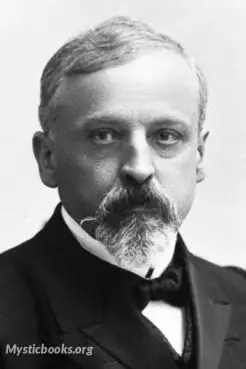
Henryk Sienkiewicz
Poland
Henryk Adam Aleksander Pius Sienkiewicz, also known by the pseudonym Litwos [ˈlitfɔs], was a Polish journalist, novelist and Nobel Prize laureate. He is best remembered for his historical novels, espe...
Books by Henryk SienkiewiczDownload eBooks
Listen/Download Audiobook
- Select Speed
Related books

Mona Lisa by Mary Gardiner Horsford
Mona Lisa is a poem by Mary Gardiner Horsford that focuses on the famous painting by Leonardo da Vinci. The poem explores the mystery and allure of th...

Manual of Egyptian Archaeology and Guide to the Study of Antiquities in Egypt by Gaston Maspero
A handbook of Egyptian archaeology, issued by the British Museum, considered suitable for British tourists traveling to Egypt in the 19th Century.
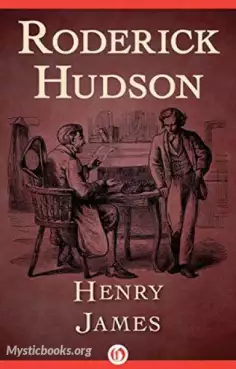
Roderick Hudson by Henry James
Rowland Mallet, a wealthy Bostonian bachelor and art connoisseur, visits his cousin Cecilia in Northampton, Massachusetts, before leaving for Europe....

Non-Combatants and Others by Rose Macaulay
This novel explores the complex moral and social landscape of England during the First World War through the experiences of an art student. Rose Macau...
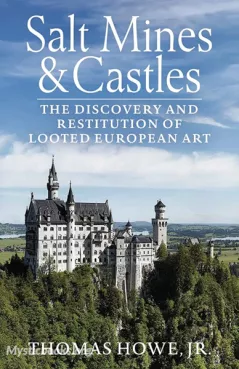
Salt Mines and Castles: The Discovery and Restitution of Looted European Art by Thomas Carr Howe
The book explores the efforts of the Monuments, Fine Arts, and Archives program, also known as the "Monuments Men," to locate and return stolen artwor...

Thirty More Famous Stories Retold by James Baldwin
James Baldwin's "Thirty More Famous Stories Retold" is a collection of thirty stories for intermediate readers and listeners of all ages. These storie...

Marius the Epicurean, Volume 2 by Walter Pater
Marius the Epicurean is a philosophical novel by Walter Pater, published in 1885. The novel is set in the Roman Empire during the reign of Marcus Aure...

Canada in War-Paint by Ralph W. Bell
This takes readers on a captivating journey through the evocative world of Canadian wartime art. From the vivid battle scenes to the intimate portrait...

Birds and All Nature, Vol. IV, No 6, December 1898 by Various
Birds and All Nature is a monthly publication of the Nature Study Publishing Company of Chicago. It includes short poems and brief descriptions of bir...
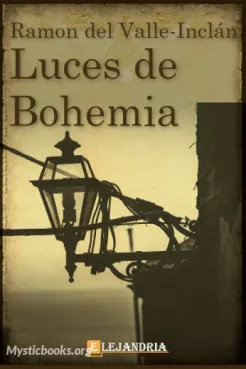
Luces de bohemia by Ramón del Valle-Inclán
Adéntrate en el turbulento Madrid nocturno con "Luces de Bohemia" de Ramón del Valle-Inclán, una obra maestra de la literatura española. Esta trágica...
Reviews for Quo Vadis
No reviews posted or approved, yet...